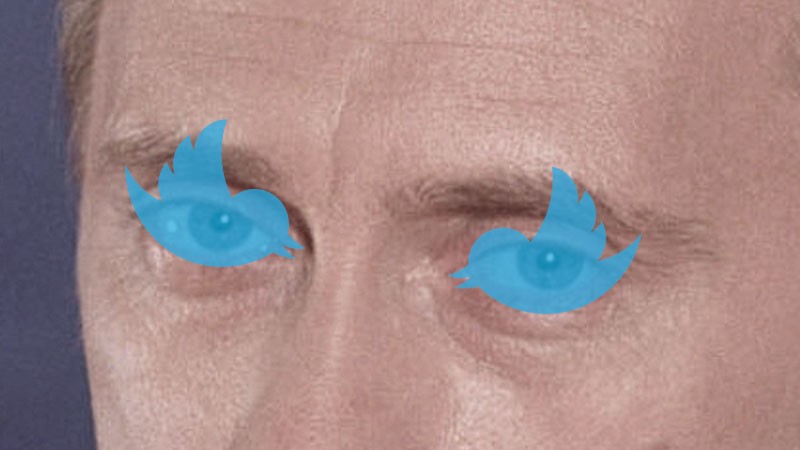
Images edited by Kevin Rothrock.
The Kremlin’s media watchdog, Roskomnadzor, claimed earlier today that it’s succeeded in pressuring Twitter to “delete 32 links” that violated Russian laws. Roskomnadzor also says its negotiations with Twitter continue regarding a longer “debt list.”
This is not the first time Russian censors claim to have persuaded Twitter to comply with takedown requests. As before, Moscow’s claim today that Twitter “deleted 32 links” is inaccurate and somewhat misleading.
Twitter, along with Google, Vimeo, and Reddit, are the only four Internet companies to post actioned takedown orders to the Chilling Effects Clearinghouse, a project of the Electronic Frontier Foundation and several law schools, to promote transparency. According to that database, Twitter received a letter from Roskomnadzor on May 27, 2015, asking the website to block 53 different hyperlinks, including both individual tweets and entire Twitter accounts.
Twitter did respond to Roskomnadzor’s request, applying its familiar “Country-Withheld-Content” tool to 32 of the tweets, making them invisible to any users whose account settings place them inside Russia. (Changing this setting is a very simple process.)
This tweet is withheld to Russia-registered Twitter users:
https://t.co/JSDtBisPJj pic.twitter.com/ZIfimn9yUx
— Россия, вставай! (@WakeUpR) December 20, 2014
January 15, 2015. Manezh Square. We'll be discussing [Navalny's] verdict.
This tweet is not:
Мероприятие собирались посетить уже 12 000, а приглашены 58 000. pic.twitter.com/95Vz9O0Jk7
— Рустем Адагамов (@adagamov) December 20, 2014
This event has already attracted 12,000 RSVPs and another 58,000 are invited.
Twitter took no action on 21 of Roskomnadzor’s requests, including all 11 takedown orders directed at entire Twitter accounts. Some of the links Russian censors failed to get blocked include accounts belonging to environmental activist Yevgeniya Chirikova, supporters of Siberian political autonomy, the popular Euromaidan account, and others. Twitter also refused to block Russians’ access to several tweets by prominent opposition figures, such as posts by photographer Rustem Adagamov and liberal media mogul Alexander Vinokurov.
Roskomnadzor’s latest troubles with Twitter build on a conflict with Facebook that dates back to late last year.
On December 20, 2014, Facebook infamously agreed to block Russian users’ access to an event page dedicated to a January 15, 2015, rally outside the Kremlin in support of political prisoner Alexey Navalny. Facebook has never acknowledged the move, but it did refuse to block replacement event pages established afterwards, which soon attracted more RSVPs than the original event ever had. Ultimately, Navalny’s verdict came two weeks early and he (but not his brother) was spared prison time, obviating the need for a demonstration on January 15.
All but two of Roskomnadzor’s requests to block individual posts concern tweets advertising the January 15 demonstration—a rally that never took place. Using its “Country-Withheld-Content” tool, Twitter blocked 30 of these tweets, though it refused—without any clear pattern—to block several others that are nearly identical. (Twitter did agree to “withhold” two tweets by a woman named Oksana Vyolva, who called people in the city of Mineralnye Vody to a nationalist protest in late January against the murder of an ethnic Russian man by a gang of North Caucasians in 2014.)
Russian censors submitted all these takedown requests almost five months after the events in question.








3 comments
Was the content removed/blocked only posted by fellow Russians? Or did it include posts by people from other countries/regions? Do their accounts recieve a strike/warning of some sort?